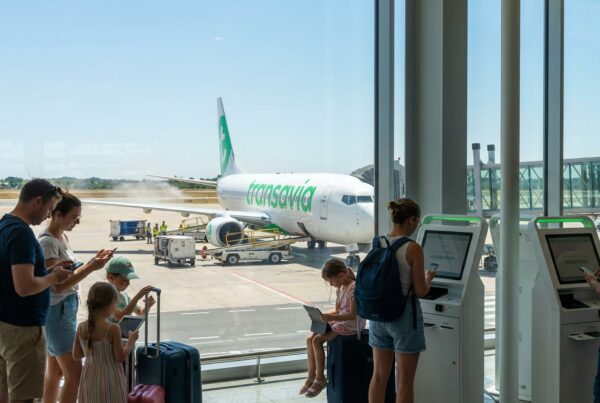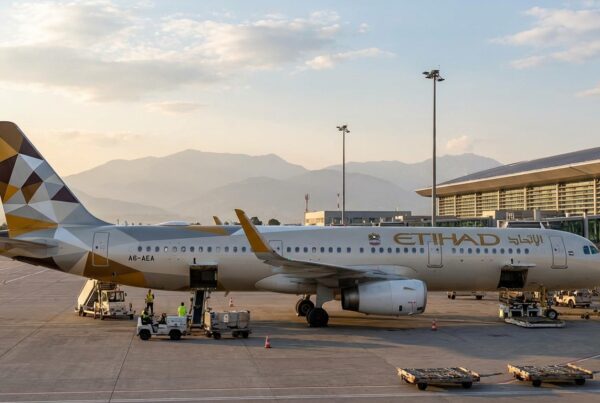Air Canada faces late delivery concerning the first aircraft ordered, in particular the A321XLR and 787-10. These delays are disrupting the company's expansion plans and compromising fleet modernization programs. Various technical and administrative factors seem to be at the root of these delays, impacting the dynamics of order management. Despite these complications, Air Canada is working closely with its partners and suppliers to resolve problems quickly and ensure a match with future needs. The company's strategy remains focused on constantly improving its operational performance. Coming soon.
The recent announcement concerning the delay in delivery of the first A321XLR and 787-10 ordered by Air Canada raises many questions about current logistical and industrial issues. This situation is a perfect illustration of the challenges facing players in the aeronautical sector in a context of growing demand and global disruption.
Visible impact on the company's schedule
Air Canada is facing delivery delays that could impact its operational schedule. The announced delay could lead to adjustments in schedules and flight planning. The measures taken by the company to compensate for these delays reflect a desire to limit the impact on service regularity, while seeking to satisfy an increasingly demanding clientele.
The causes of delay: a multifactorial issue
Several factors seem to contribute to this delay in delivery. On the one hand, procurement and supply chain issues are having a major impact on production. On the other hand, technical challenges and heightened safety requirements in the post-pandemic context have led to revisions of delivery schedules. These industrial issues are not isolated, and are in line with other recent examples of disruptions in the aviation world, such as those mentioned in some of the articles published, notably around delivery delays and disruptions caused by major climatic events.
A dynamic reminiscent of other cases in the aeronautics industry
Air Canada's situation is not the only one of its kind. Indeed, similar delays have been noted in aircraft deliveries to other airlines, echoing the concerns expressed in various trade articles. In addition, reports of delays related to extreme weather conditions or technical problems, as recently experienced in the USA, underline the fragility of the aeronautical supply chain. For more details on weather-related disruptions, please consult this dedicated article.
Impact on order planning and relations with manufacturers
The delay in delivery of these aircraft is part of a trend that is also affecting other major players in the sector. Some airlines are facing similar difficulties due to problems at their suppliers or revisions to their production schedules. For example, disruptions at Boeing and Ryanair, mentioned in specialized sources, echo these challenges. A recent article also highlighted concerns about a possible delay in 737 MAX deliveries, reinforcing the need for each player to redouble their efforts in coordinating with their partners. To follow the evolution of these topics, this article provides detailed information.
Strategic issues for Air Canada
Faced with these delays, Air Canada is having to readjust its strategies to maintain a high level of service. The company is planning to optimize the management of its fleet and strengthen its communication with customers in order to limit the inconvenience caused by schedule changes. At the same time, it appears that current logistical problems are also prompting other airlines to review their orders and operating forecasts. On a global scale, this context is a reminder of the need for the aeronautical industry to modernize its supply chains, particularly in times of volatility. To put these issues into perspective, please consult this specialized article.
Adapting to unforeseen events and operational disruptions
Delays in delivery of the A321XLR and 787-10 ordered by Air Canada reflect an industry in the throes of change, where every player must constantly adapt to unforeseen circumstances. Delays are not just limited to orders, but also affect the entire customer experience, making transparent, proactive communication essential. Disruptions at other airports, such as those in Toulouse, are a reminder of the complexity of air traffic management. Find out more about the situation in Toulouse, this link offers a complementary point of view.
Impact on competition and manufacturers' decisions
Delays and necessary readjustments also impact on competition between major airlines and manufacturers. By downsizing, as has been reported in some cases, a major manufacturer is attempting to reframe its strategy to better meet new market demands. This context of reorganization can be found in many segments of the industry, including Southwest, where delivery delays are leading to significant changes. For an overview of this situation, please consult this article.
Order details and key aspects
| Operator | Air Canada |
| Models ordered | A321XLR and 787-10 |
| Delivery status | Delayed delivery |
| Impact on planning | Deadline imposed on fleet deployment |
| Operational consequences | Revision of deployment schedules and strategic adjustments |
| Communication strategy | Information awaiting official update |
| Market reaction | Increased monitoring and assessment of future impacts |




